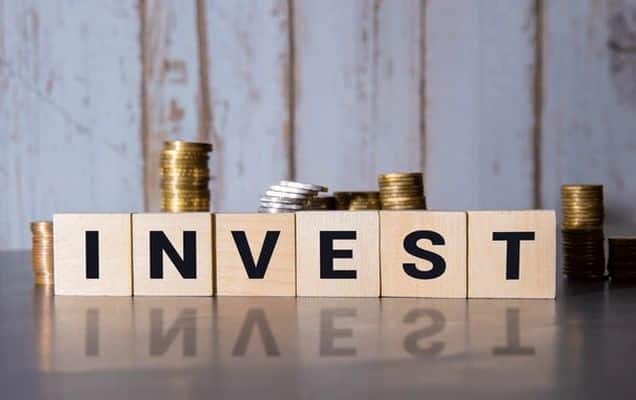Namaste, my farmer brothers and sisters, Greetings.
Today, it is a matter of great happiness for me that I have got a rare opportunity to directly listen and know the experiences of our farmer brothers and sisters who are connected with us, who are connected with us through 600 Agriculture Science Centres (KVKs) and also through more than 2 lakh Common Service Centers located in different villages across the country.
You people have taken time out for this thing, you people are sitting there in a joyous atmosphere and here I am able to see smiles on your faces and your enthusiasm and zeal on my TV screen. It’s a matter of great happiness for me today. Farmers feed us, they provide food to people, they provide fodder to livestock and raw material to all the industries, the entire credit for ensuring the food security of the country goes to our farmer brothers and sisters.
Our farmers worked extremely hard in order to make India self-sufficient in terms of food grains, however, the farmer’s own development continued to shrink with the passage of time. From the beginning, farmers of the country have been left at the mercy of their destiny. A regular effort, a scientific effort was needed to bring about a change in this thinking. However, that thing has been delayed by several years. In the last four years, we have made every effort in a balanced and comprehensive manner to prepare good quality seeds, to provide them to farmers and also to provide everything from electricity to water to access to market to our farmers. And we have decided that we need to move forward with the target of doubling the farmer’s income by 2022; that we need to move forward by amending the old policies of the government; that we need to move forward by overcoming the difficulties and impediments wherever they may be.
And when we talked about doubling the farmer’s income then there were a lot of people who made fun of this thing. They said: it’s not possible, it’s very difficult, how this thing can be done; and they created an atmosphere of gloom. However, we have resolved this thing. I have faith in farmers of the country that if a target is set for them, if necessary environment is being created then the farmers of my country are ready to take risk. Farmers are ready to work hard and produce results and they have shown this thing in the past by achieving it.
In order to achieve this, we have set a target and a continuous effort is being made in that direction by taking along all of you - all the farmers. In order to realise this thing the emphasis has been placed on four things. First: how to minimise the cost of cultivation, the cost of raw materials for farmers. Second: how to ensure the fair prices for his produce. Third: prevent the wastage of his produce. And the fourth thing is to provide alternative sources to supplement his income in addition to farm income.
The government has taken an extremely important decision in this year’s budget to provide fair price for their produce to the farmers of the country. The government has decided that the MSP for the scheduled crops will be declared at least one and a half times of the cost of cultivation. A lot of things have been included in this thing. And I would like to tell you that the cost of cultivation which will be calculated for fixing the MSP will also include the cost of labour by farm labourers, the cost incurred on the machines and livestock will also be included, the cost of seeds and fertilisers will also be included, cost of irrigation will also be included, the revenue paid to the state government will also be included, the interest paid on the working capital will also be included, the lease rent paid on the land will also be included in it; all these things are included in the MSP. Not only this, the labour provided by a farmer and his family members, that labour cost will also be included in the MSP after making an assessment and on the basis of that the MSP will be fixed.
The government allocates a certain amount of money for agriculture in the budget. During the last five years of the previous government, the allocation for agriculture was Rs. 1.21 lakh crore. We have increased it to nearly Rs. 2.12 lakh crore for these five years between 2014 to 2019. It means that we have nearly doubled the budget allocation for agriculture. It clearly reflects the commitment of our government for the welfare of farmers.
Today, there is not only record production of food-grains but also of fruits, vegetables and milk. Our farmer brothers have broken all the record of the last 70 years and they have made a new record. There has been an unprecedented progress of agriculture sector in the last four years. Food grain production in the year 2017-18 was at around 280 million tons while the average production during the previous government’s tenure between 2010-14 was around 250 million tones. Similarly, an increase of 10.5% in the average production of pulses and an increase of 15% in the average production of horticulture have been registered.
An increase of 26% has been registered in the production of fishes under the blue revolution while an increase of nearly 24% has been registered in milk production and animal husbandry. It is our endevour that farmers should get help in every stage of farming, it means before sowing, after sowing and even after harvesting the crop. If we say this thing in a simple manner then the decisions are taken and schemes are formulated in a manner that how the government can be of any help to farmers, how can it ensure justice to them in the entire process of farming – right from growing the crop to its sale in the market – it means from seed to market.
We have been moving in the direction of maintaining an entire system for the welfare of farmers. We have started soil health card so that a farmer can come to know which crop should be sown. Once it has been determined that which crop is to be sown then farmers should get good quality seeds, an arrangement for farmer’s loan has been made and the ambit of Kisan Credit Card was expanded so that they don’t have to face the problem of capital.
Earlier there used to be long queues for getting urea. However, now farmers are easily getting urea and other fertilisers as well; they don’t have to buy it from black market. Today, there is 100% Neem coated urea is available to the farmers of the country.
After sowing comes the irrigation. Today, nearly 100 irrigation schemes are being completed under the Prime Minister Agriculture Irrigation Scheme. We have been moving forward so that every field can get water. Farmers should not face any kind of risk for their crops that is why today there is a crop insurance scheme. An online platform E-Nam has been started so that farmers can get appropriate price for his produce when his produce are supplied in the market. And the most important thing is that now middlemen can’t take a cut, can’t misappropriate farmer’s profit. Let’s see what benefits our farmer brothers and sisters have got from these schemes, what kind of changes have been brought into their lives. If we will hear it directly from them, if we will hear their own experience then, perhaps, the other farmers of the country will also get one more opportunity to say like: yes, if a farmer of that region can do it so can I.
My dear brothers and sisters, today, those people who have been watching this entire conversation, they would be thoroughly proud of our farmers, of their hard work and on the progress made by them and also on the new experiments conducted by them. I believe that when the villages of the country, when the farmers of the country will progress only then the country will progress. When our farmers will become strong only then our country will become strong too.
My farmer brothers and sisters,
I have been regularly talking to the different people of our country by using this technology. Even today, lakhs of people, lakhs of farmers have joined me in this conversation. The dialogue with you people is not only being heard by me, it is also being heard by the entire country and by every farmer of the country and they are learning from you people. The government officials are also listening to you, they are making notes of your issues and they will also discuss the experiments conducted by you. And they will try to further implement them. And my this programme will continue further because this programme has become an university for me which teaches me something or something else every week. It teaches me through the citizens of the country. It provides me the opportunity to meet the people located in the far-flung areas of the country, it gives me an opportunity for dialogue. With the help of technology, I have been learning and understanding a lot of things from you people. I get direct information from you people about what is happening in different parts of the country.
So, I am going to meet again on the next Wednesday. Next Wednesday i.e. on the 27th June. And on 27th June, I will talk to our poor people, to our low-middle income people and middle class people, to our farmer brothers and sisters, to our artisan brothers and sisters and I will talk to them about our insurance schemes for their social security. I will talk to them about those schemes; about the benefits from them, from our social security insurance schemes because we have worked on them in a very comprehensive manner. And I believe that all of you, my farmer brothers and sisters, would have certainly adopted these schemes. You people would have taken advantage of Suraksha Bima Scheme. I am happy that today I got the opportunity to have an audience with the farmers of our country; I got the opportunity to receive their blessings and hear their stories of their hard work. Today, their hard work and their dedication have been taking the country to newer heights.
Once again I bow down to all my farmer brothers and sisters. You people have taken time out for me and told me about a lot of things. I am extremely grateful to you people.
Thank you.













